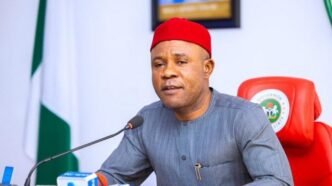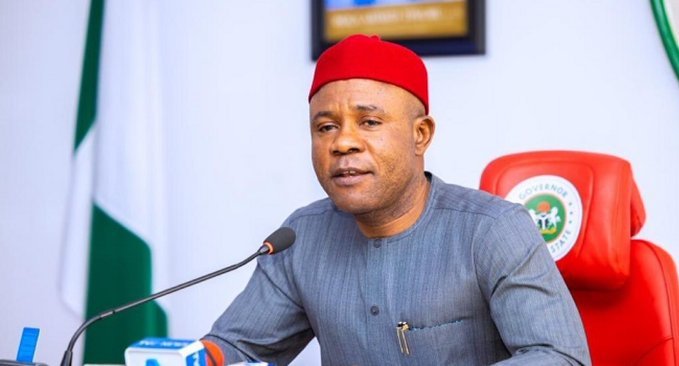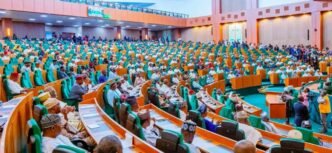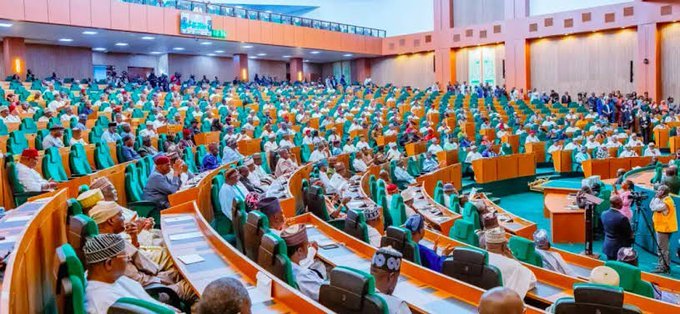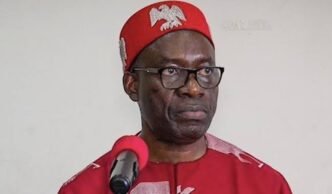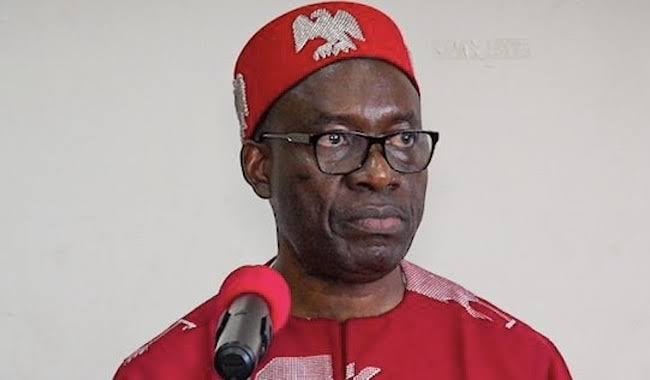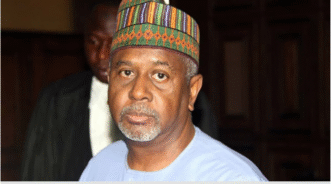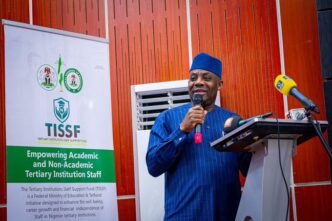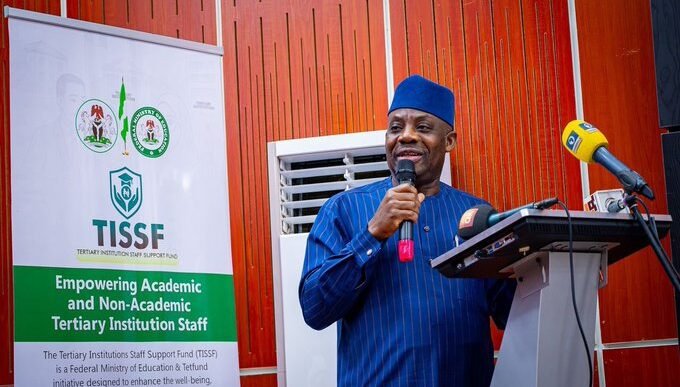Enugu, October 14, 2025 — In a dramatic political development that is sending ripples across Nigeria’s political landscape, Governor Peter Ndubuisi Mbah of Enugu State has officially defected from the Peoples Democratic Party (PDP) to the ruling All Progressives Congress (APC). The announcement came on Tuesday, October 14, following weeks of speculation, and marks one of the most significant defections in recent times in the Southeast geopolitical zone.
The Defection Announcement: When, Where, How
Governor Mbah made the declaration during a press conference held in Enugu, stating that “after a long period of reflection,” he and his political family had resolved to leave the PDP and join the APC. According to the governor, the defection is motivated by the belief that his vision for Enugu State and the Southeast best aligns with the APC’s current developmental agenda under President Bola Ahmed Tinubu.
During the event, Mbah was flanked by key state and national political actors, including his predecessor, Ifeanyi Ugwuanyi, federal and state legislators, and high-ranking members of his government. He thanked the PDP for the role it played in his political journey but lamented that despite the Southeast’s loyalty to the party, the region’s voices often went unheard.
He said in part:
“Today, after a long period of reflection, we have decided to leave the PDP and join the APC. We share a vision that transformation must be disruptive.”
“I have found in His Excellency, President Bola Ahmed Tinubu, a partner in purpose … the voice of Enugu people and that of the Southeast will now be heard in Abuja.”
On Monday, the day before the official press briefing, several of Governor Mbah’s commissioners, aides, and key allies reportedly held a meeting at the Government House in Enugu, seen by many observers as a preparatory session ahead of the public defection.
Scope of the Defection: Not Just One Man
This defection is not merely symbolic — it is sweeping. Alongside the governor, all commissioners of his government, all 17 local government chairpersons, elected councillors, and a significant portion of PDP executives in Enugu have pledged allegiance to the APC. The governor claims that over 80% of party executives in Enugu have also joined him in the move.
The APC has already issued the governor his membership card in a ceremony by the National Working Committee, formally integrating him into the ruling party.
In response, the APC welcomed Governor Mbah and his supporters, promising full integration and support for his agenda in Enugu State. The party described his defection as a strategic repositioning that would accelerate development and deepen collaboration between the state and the federal government.
Political Implications: Local, Regional, and National
1. A Big Blow to the PDP in the Southeast
Enugu is one of five states in Nigeria’s Southeast. The region has traditionally been a stronghold of the PDP. Governor Mbah’s exit represents a striking erosion of the party’s grip in the region. The defection may embolden other opposition figures to shift allegiances, putting pressure on the PDP’s regional cohesiveness.
2. Reinforcing APC’s Strategy in the South
The APC has long sought inroads into the Southeast, which has often resisted alignment with the ruling party. With Mbah’s entry, the APC can point to governance legitimacy in a state previously under PDP control. This strengthens President Tinubu’s political coalition and could reshape power dynamics heading into future elections.
3. A Matter of Development vs. Political Ideology
Governor Mbah emphasized that his decision was rooted in developmental synergy rather than mere party politics. He framed the defection as a necessary realignment to ensure that Enugu can benefit more directly from federal policies, projects, and resources.
Supporters argue that alignment with the ruling party may ease the flow of federal projects into Enugu. Critics, however, may contend this is opportunism and question whether substantive governance or patronage will drive outcomes.
Reactions from Stakeholders
APC’s Response
The ruling party has lauded Governor Mbah’s decision, describing it as courageous and strategic. The APC sees this as pivotal to consolidating its presence in Enugu State, positioning it for deeper influence in the Southeast.
Stakeholders in Enugu and Southeast
Prior to the defection, key figures including Kashim Shettima, Godswill Akpabio, and Abbas Tajudeen were said to be headed to Enugu to formally receive Governor Mbah and other defectors into APC. Also, Enugu’s traditional rulers and civil society groups reportedly backed Mbah’s move, citing his developmental credentials and the need for greater cooperation with the federal government.
In Enugu State itself, local political structures, including the Association of Local Governments (ALGON) and party executives, have signaled readiness to support the governor’s new course.
PDP’s Silence (So Far)
As of this writing, the PDP at state and national levels has not delivered a definitive response. It has yet to issue a comprehensive rebuttal or repositioning statement on the defection, though the magnitude of the loss is sure to raise internal alarm bells.
Who Is Peter Mbah? Background & Political Trajectory
Before assuming office as governor on May 29, 2023, Peter Ndubuisi Mbah was a businessman and technocrat with strong credentials in finance, investment, and public administration. In 2022, he emerged victorious in the PDP’s primary elections in Enugu by winning 790 of 807 delegate votes.
He has previously served as Chief of Staff, Commissioner for Finance and Economic Development, chairman of various state boards, and has been active in state and national governance. His administration since 2023 has emphasized infrastructure, education, health, and technology-based public service delivery.
Given his technocratic bent, many observers believe his defection was not solely political grandstanding but could reflect a strategic repositioning to secure stronger federal partnerships. That said, only time will tell whether this move will translate into tangible gains for Enugu people.
What Comes Next?
1. Consolidation Phase
Governor Mbah and his team will need to work to integrate the defectors fully into the APC structure—organizing primaries, leadership nominations, and harmonizing party organs in Enugu.
2. Federal-State Relations
With synchronization in party membership, Enugu may gain easier access to federal projects, allocations, and political goodwill. But delivering visible results will matter more than party alignment in the judgment of citizens.
3. PDP’s Strategy
The PDP faces a moment of reckoning in Enugu and the Southeast. Can it stem the tide of defections? Will it rebrand or reorganize? Its survival in the region may hinge on greater internal cohesion and recalibrated messaging.
4. Electoral Repercussions
This defection raises the stakes heading into future elections—2027 and beyond. The APC may contest Enugu gubernatorial, state assembly, and parliamentary seats more aggressively. For the PDP, defending its remaining bases will be more challenging.
Final Word
Governor Peter Mbah’s defection to the APC is a high-stakes gamble with far-reaching implications. It signals not only a personal repositioning but a watershed moment for party politics in Enugu and the Southeast. Whether this pivot yields dividends in development, governance, and political stability remains to be seen—but for now, it is a defining moment in Nigeria’s evolving political narrative.

